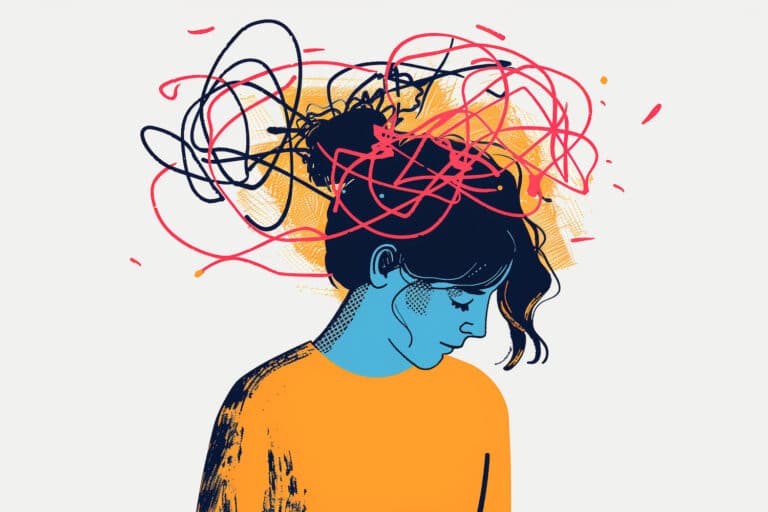Does anyone else wonder, after snacking during a solo Netflix marathon or a night out with friends: “Did I just eat too much?”
If so, you’re not alone. Most of us find ourselves wondering if we ate too much from time to time. And we usually know the answer before too long because our body gives us some sort of feedback — a stomachache, the need to lie down, or even indigestion.
Knowing when we’ve crossed the line from overeating to bingeing can be a little trickier. So that’s what we’re going to talk about today.
Of course, this isn’t an attempt to make anyone feel guilty or ashamed. Understanding the line between overeating and binge eating gives us awareness. And awareness in this arena is key for anyone at risk of developing binge eating disorder in the future.
What is Binge Eating?
Let’s start with a simple definition. Binge eating consists of eating more food than you normally would during a specific period. It also usually includes a component of feeling out of control. (1)
Of course, this definition is also pretty vague. You may eat more chips and salsa than usual at your local restaurant. You might even say to your friend across the table, “I can’t help myself. This stuff is too good!” But does that constitute a binge? Let’s get more specific.
How Much Food Equals a Binge?
According to mentalhealth.gov, a person may consume between 5,000 and 15,000 calories at one time. They may also consume food throughout the day, not in small, spread-out meals, but in addition to eating a normal or larger-sized breakfast, lunch, and dinner. (2)
A 5,000-calorie meal may look like eating a large pepperoni pizza and a bag of Doritos over just a few hours while drinking a 20-ounce bottle of Coke.
As you can see, binge eating is markedly different from overeating. In addition to the amount of food consumed, a binge will likely be done in private and may be followed by feelings of shame and guilt.
Still, you might wonder, what is the harm?
What Are the Dangers of an Occasional Binge?
While binge eating once in a while may seem harmless, it can lead to binge eating disorder, where a person binges more frequently and with less control. Binge eating disorder is the most common eating disorder and can wreak havoc on a person’s mind and body.
Problems caused by binge eating disorder include mental health issues like anxiety and depression, type two diabetes, heart disease, high blood pressure, and even stroke. (1)
If you or someone you love struggles with occasional binge eating, now is the time to get help. You can give us a call today at 205-235-6989.
Resources:




